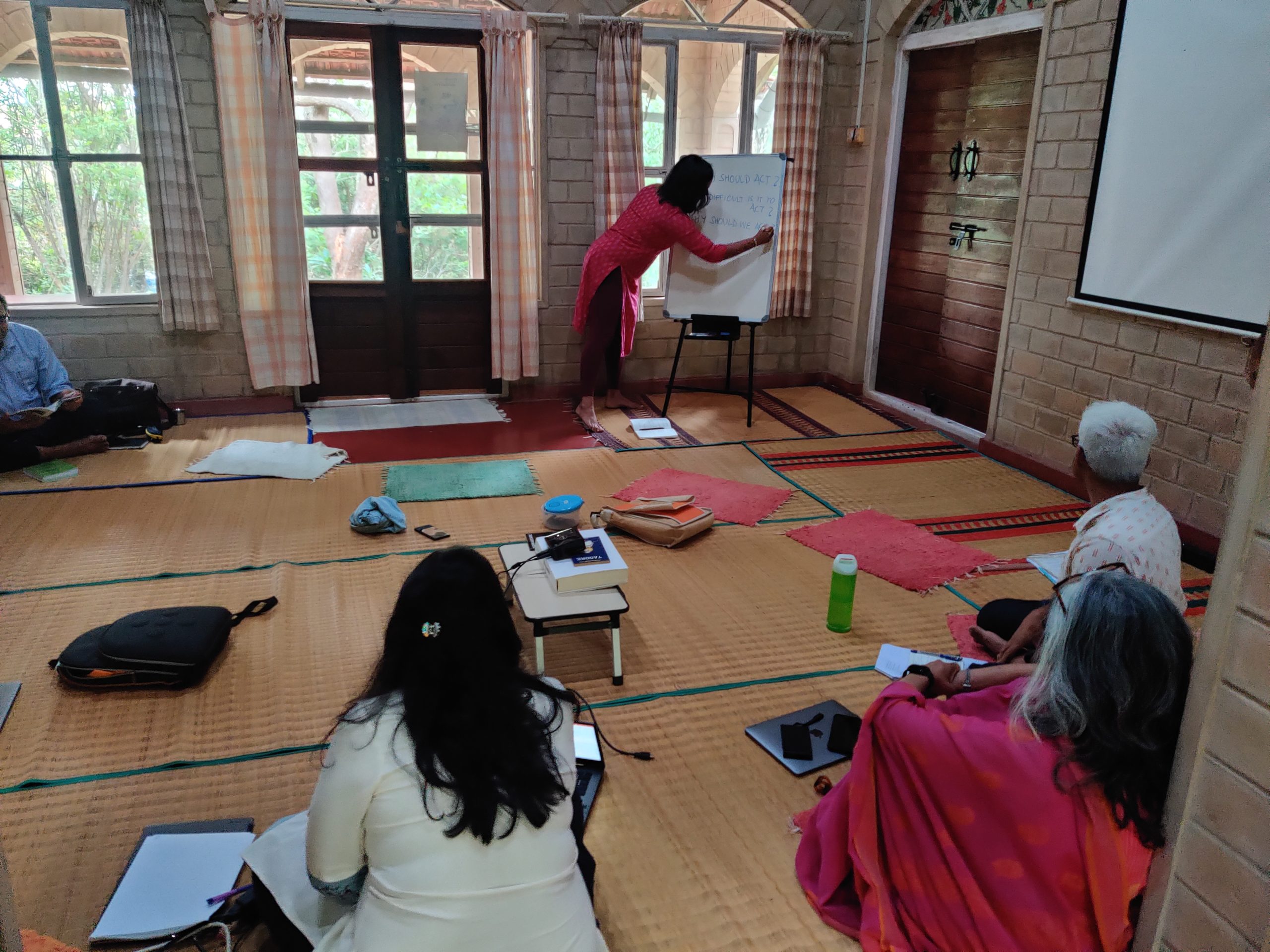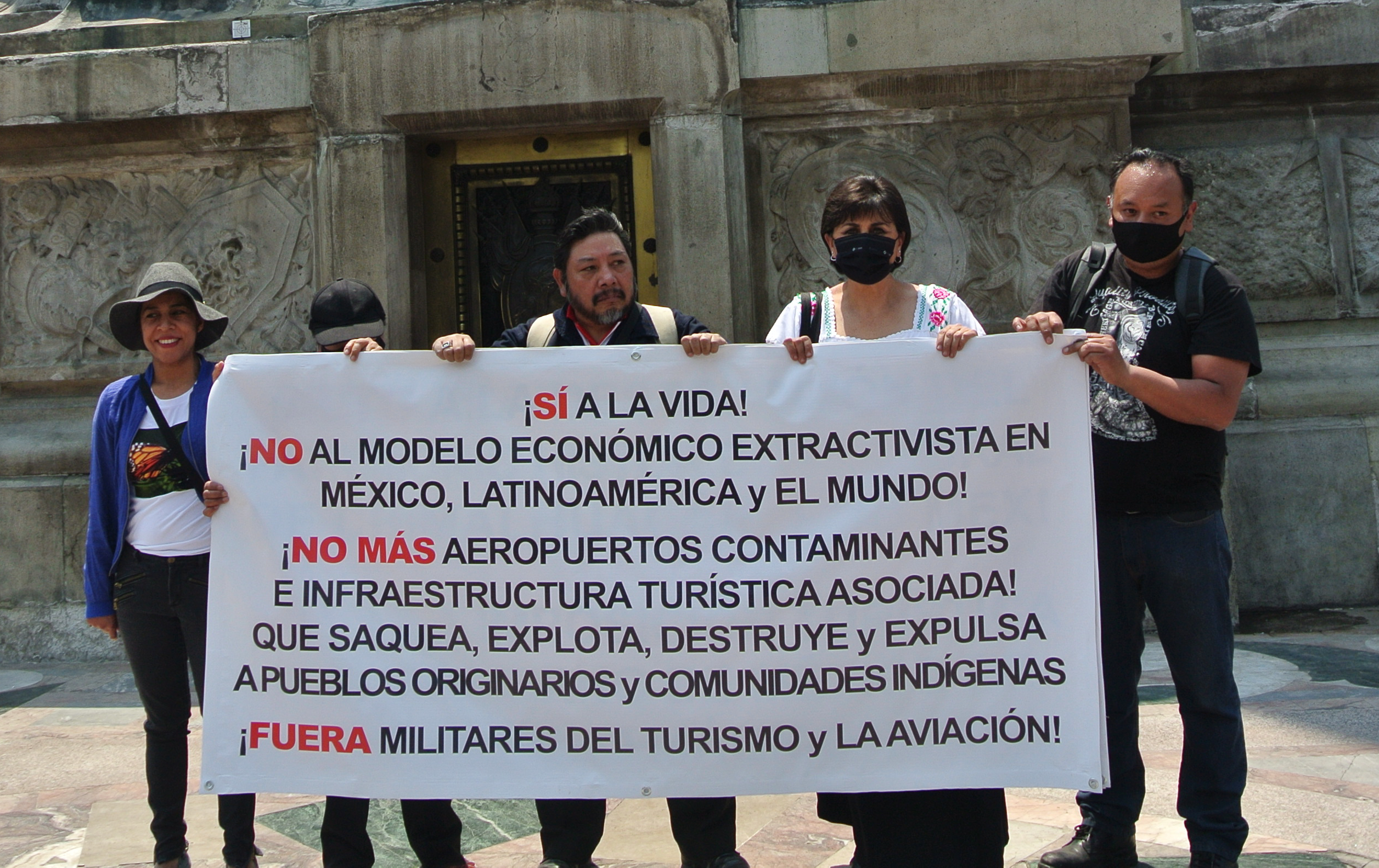This was the “Beyond Aviation, Tourism and Capitalism” Conference
For a Just Mobility for All.
Time to strategise!
From July 3 – 6 2025, social movements and people engaged in countering air traffic’s and tourism’s negative impacts met for a big conference. The question was: What can we do to win the battle against the escalating ecological and social crises?
We had time to evaluate, discuss our strategies, and build relationships to empower, support and learn from each other. The conference worked without a flight taken. It took place in person in Barcelona, with possibilities for online participation for parts of the program, and local hubs in India and Mexico.
Click here for a summary of the conference:
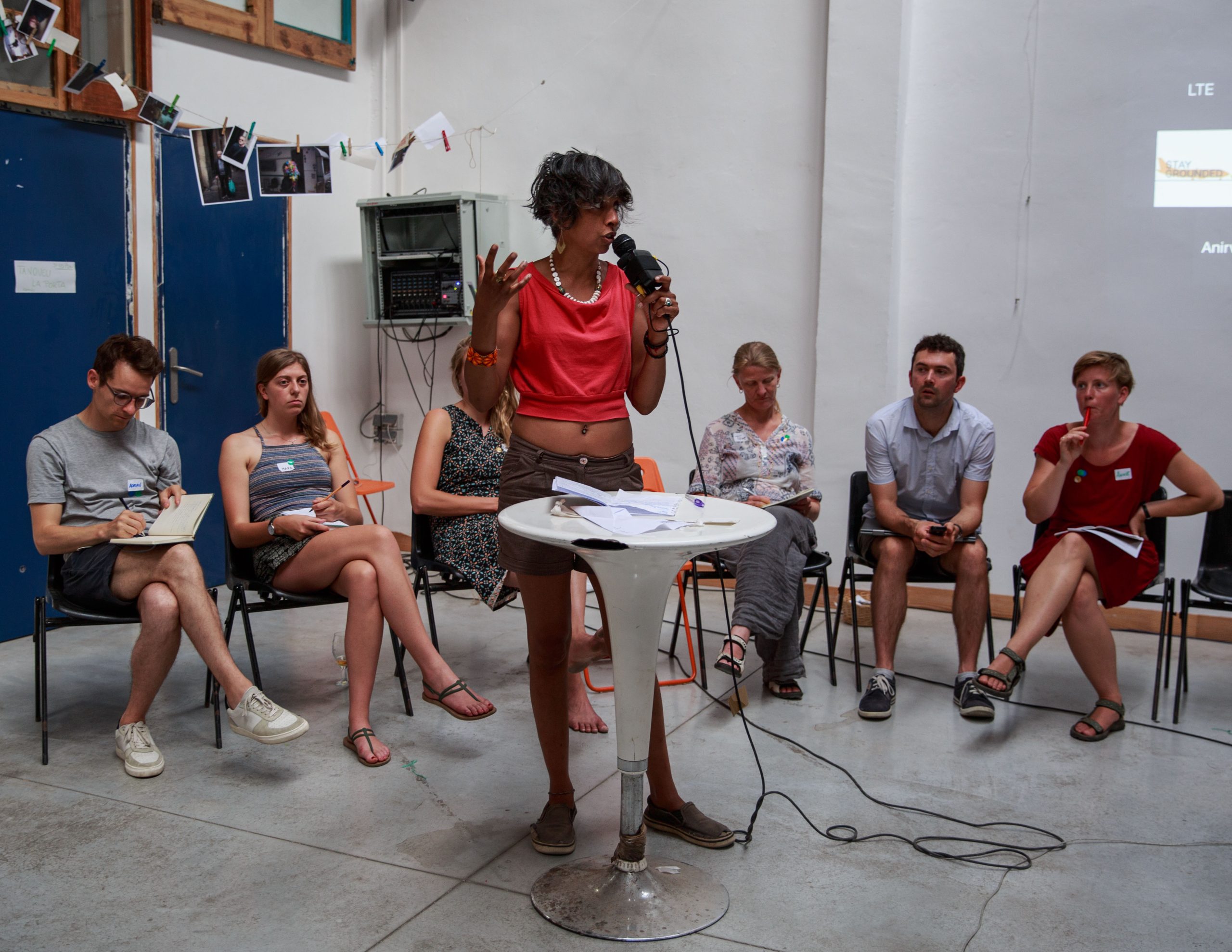
Why this Conference?
Thanks to the tireless work of people across the world, we’ve seen rising awareness about the impact of aviation on the climate. We’ve also seen increasing outrage about the destruction that mass tourism brings to communities, something that is strongly connected to the growth of aviation. At the same time, flights, emissions and mass tourism are on the rise, as are fascist and climate-denying forces. We are losing the battles against climate breakdown, gentrification and expulsion in favor of a wealthy minority.
Looking at this, we took time to gather, pause, and think. We used the conference to connect different perspectives and movements, join forces and plan together what we will do in the next years. We prepared emotionally and strategically for the intensifying polycrisis we live in. And we gathered inspiration and knowledge to fight and overcome it.
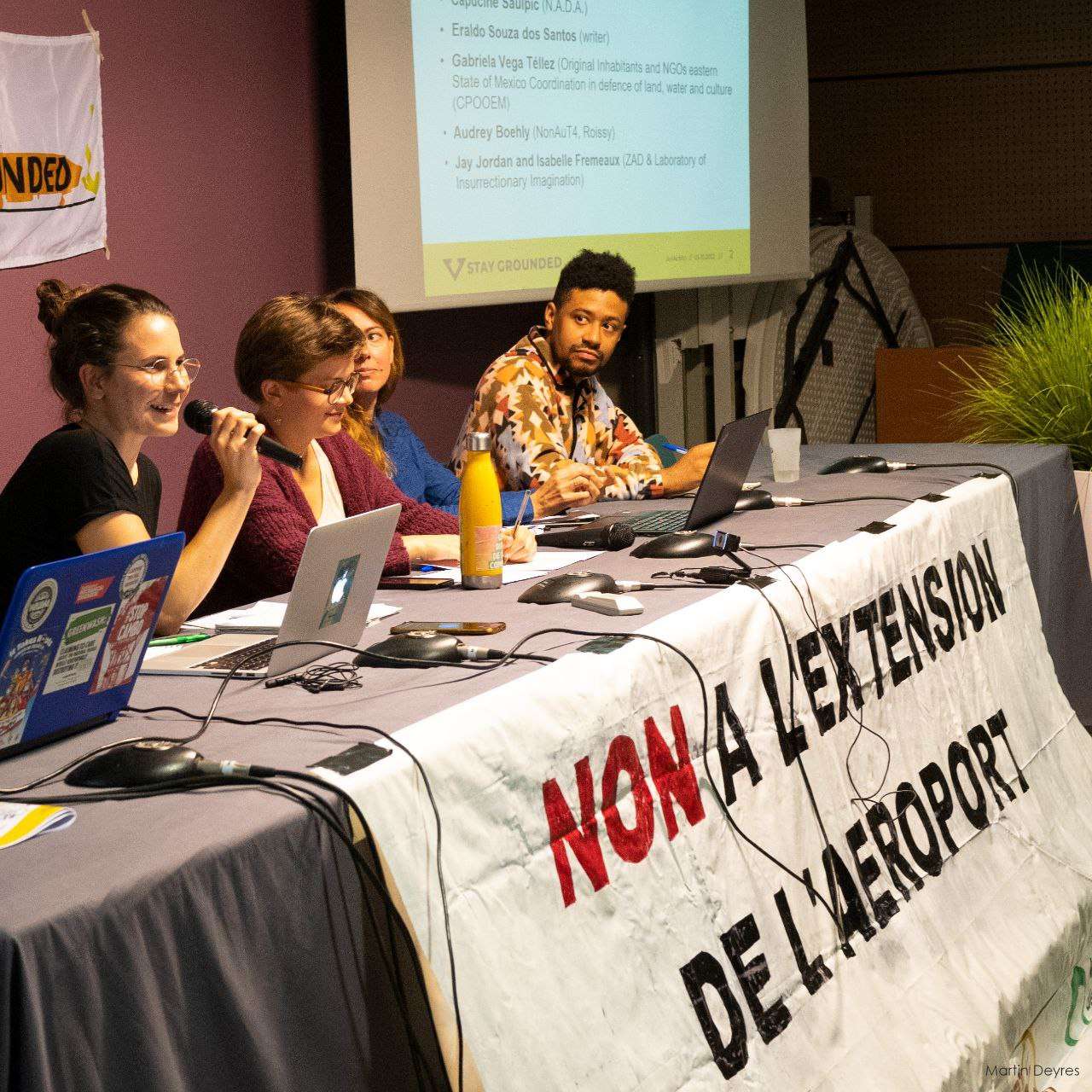
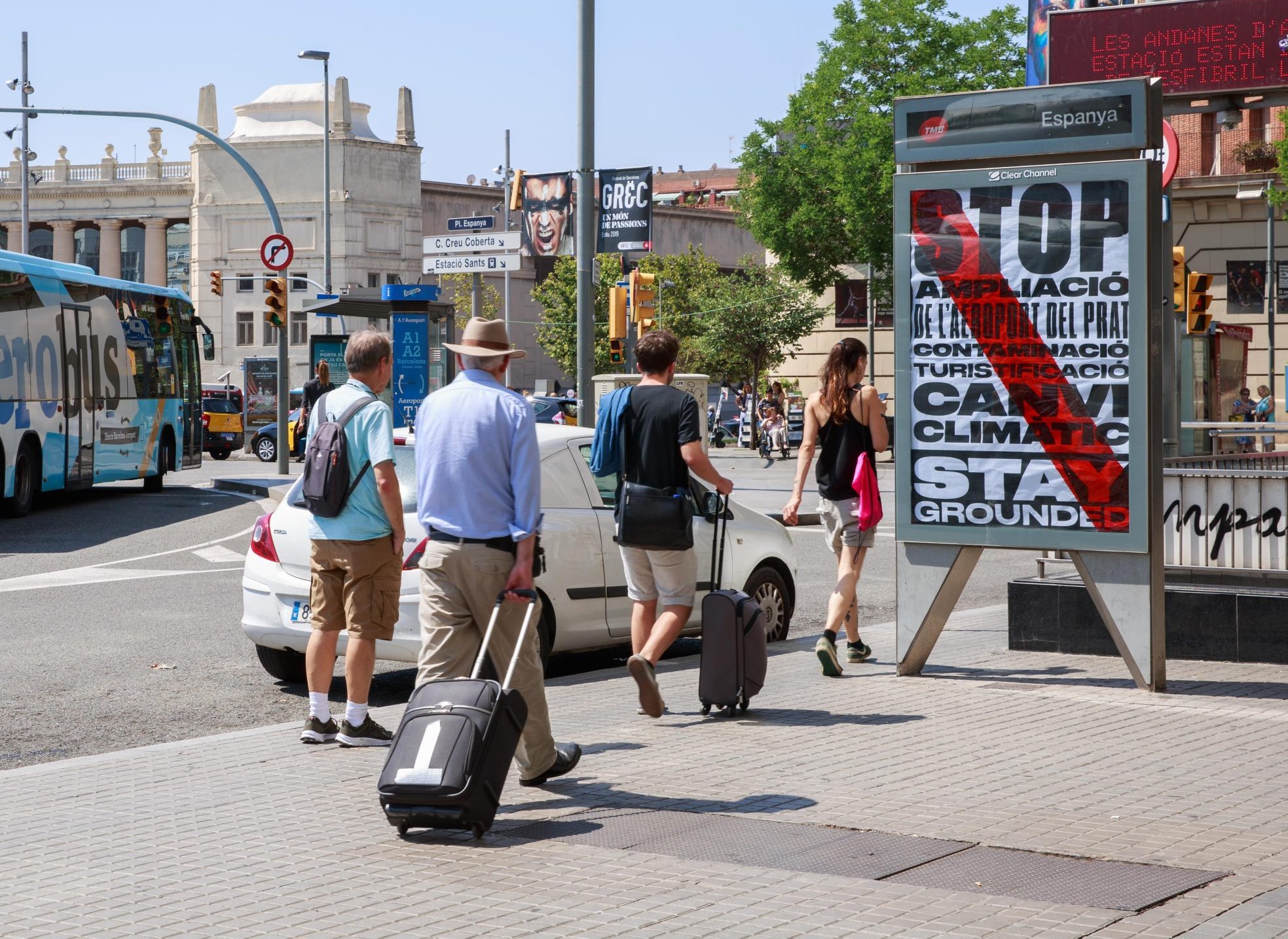
Tourism and Aviation – why we want to bring this together
We therefore see it as absolutely necessary to build pressure for a reduction of aviation not in an isolated environment but together with people and movements that organise against those negative effects, fighting for their rights and understanding where the roots of the problem come from. Together, we can understand how our struggles are connected, how we can learn from, how we can avoid falling for false solutions that only shift the problem elsewhere, and how to support each other and become stronger together.
What has social justice to do with a conference on aviation and tourism?
We recognise that the fight against aviation’s climate impact is inseparable from struggles for social justice, equity, and inclusion. Historically, much of the Stay Grounded organising team within Europe and the broader movement have been disproportionately white, middle-class, academic, and non-disabled. We acknowledge this reality openly and commit to actively addressing these imbalances.
The conference aimed to create a space that is welcoming and accessible to people from diverse backgrounds and communities, especially those who have been marginalised or underrepresented in environmental and climate justice movements. This includes actively working to reduce barriers related to race, class, gender, ability, and other intersections of identity and experience.
Our anti-oppression efforts included:
- Centering and uplifting the voices and leadership of Black, Indigenous, People of Color (BIPoC), working-class, disabled, queer, and other marginalized communities within the movement
- Creating accessible programming, physical spaces, and communication channels
- Embedding anti-oppression principles into the conference’s planning, facilitation, and follow-up
- Recognizing that climate justice and social justice are deeply connected and that the harms of aviation disproportionately affect frontline and vulnerable communities
We invite all participants to engage with these commitments in good faith and to contribute to building a stronger, more inclusive movement for climate and social justice.
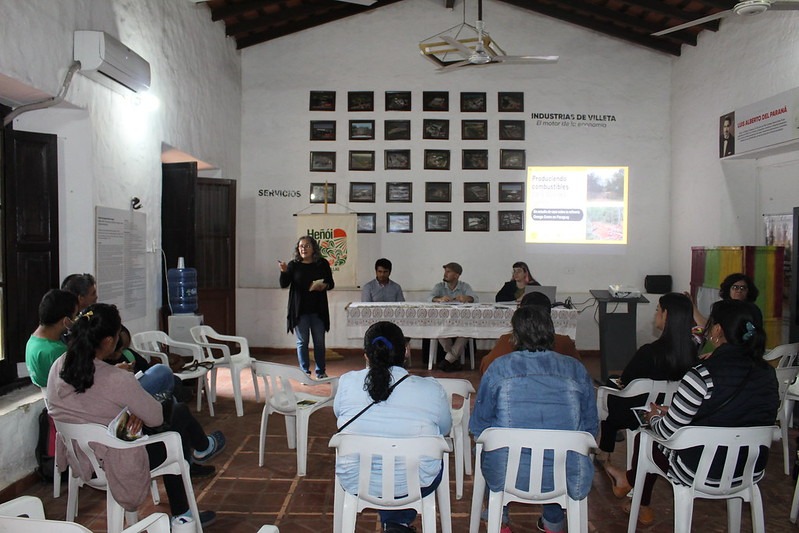
Conference Formats
The program offered a mix of in-depth strategy discussions in parallel working groups on central topics (see below); workshops on aviation, tourism and movement strategy; panels and keynotes; interactive formats to get to know each other as well as arts and cultural events.
Thematic Groups
Dedicated discussion groups on focus topics that had longer slots at the conference to discuss:
- What’s happening at the moment?
- What do we want to do next?
- What actions, activities or positions are important for our work in the coming years?
- How can we build alliances and trust among our movements?

Aviation, Tourism and Housing
The aviation and tourism industries are inextricably linked and are enemies of housing rights and the common space we all share.
New and bigger airports bring more tourists to cities and regions where the housing “market” rapidly adapts to accommodate this increased demand. Real estate speculation, in turn, leads to houses standing empty while prompting tourism growth and demanding airport expansion.
From Barcelona to Oaxaca, we have seen these dynamics becoming out of control and making life impossible for those who live in touristified places.
Social movements have responded by organizing protests for accessible housing for all and reclaiming the right to the cities and regions they live in. At the same time climate justice groups and airport neighbors have been mobilising to stop airport expansions and demand a steep reduction of aviation to avoid climate collapse. But this campaigning has rarely been in coordination with anti-tourism campaigns.
Both movements have rarely experienced significant wins. On the contrary, the situation is worsening on all fronts, we have far less access to decent and dignified housing, residents’ are seeing their access to public spaces for leisure decrease, and the climate crisis is raging.
That’s why, we want to ask ourselves:
… Why have these two different social movements been generally disconnected?
… What could we achieve if anti-touristification, housing rights’ and climate justice movements organise together?
… How can we make that happen at a local and international level?
At the strategy conference, the thematic group on Aviation, Tourism and Housing seeked to:
- analyse and map out the intersection between the aviation and tourism industries and their impact on housing rights
- look at potential joint demands and actions
- create plans for a common strategy.
Red Lines for Airports
In this moment, it is completely irresponsible to expand airports. Nevertheless, worldwide and in Europe, many construction and expansion projects are back on the table. Not only do they take us a step further towards climate breakdown. They also lead to tangible conflicts: they threaten neighborhoods and evict communities, lead to pollution, noise and health hazards as well as destroying farmland and biodiversity.
Right wing governments might lead to setbacks on the political level. However, this makes it even more important to engage in such local conflicts, fight for healthier and solidary communities, broaden our movement, and politicize neighbors. We will aim for effective wins. We want – and need – to stop expansion, cap airport capacity, ban night flights and other bullshit flights (like private jets & short haul), and shut down small airports that are dependent on taxpayer’s money.
In this thematic group, we kick-started a broad umbrella campaign called “Red Lines for Airports”, consisting of many local and internationally connected airport struggles, building pressure together to achieve local and European wins.
We learned from experiences of local struggles, discussed potential political and legal windows of opportunity, worked on joint narratives and political positions, identified key support structures that local initiatives could find useful, and decided on steps for joint mobilisations and actions. The facilitation team brought a campaign proposal, building on previous debates in the Stay Grounded network, in order to discuss the concrete shape of the campaign with the participants to be creative together.
Imagining a grounded future
For our struggle against the destructive tourism and aviation industry, it is vital to have a positive idea of what the future could hold in order to bring people on board and to have a compass to follow. But sometimes the visions we are pointing to seem very far away from the reality we live in. We think that laying the tracks towards a new economy and society beyond capitalism is an act of constant co-creation one that needs to start now and needs to be part of all our actions and organising. While there are many paths available, there are three broad qualities that it should include: wellbeing and living within the ecological limits of our planet.
In this thematic group we looked at the vision and image we have of a grounded future, one without touristification where there is fair access to mobility and leisure for everyone within the ecological and social limits of our planet. We looked at what lies between now and this end vision, what are the very concrete systems, institutions and infrastructure we need to build to get towards this future.
The questions we were posing are:
-
How are our cities and areas organised to serve the needs of the people who live there?
- What are the flights that are still necessary and how are they distributed in a fair and accessible way?
-
Why are technical developments (e.g. so-called SAF and efficiency gains) just a smokescreen that don’t provide a real solution to the problem?
-
How can we discuss alternatives that do not just replace one way of transport or form of tourism with another without actually changing the system that lies behind it?
-
What are the practices, actions and demands that point towards a world beyond the current system but that, at the same time, are not completely detached from the capabilities we currently hold?
Movement Skills for the Crisis
With the climate, ecological and social crisis worsening, fascist and authoritarian governments gaining power in many parts of the world, and rising uncertainty over whether we can still avoid brutal climate tipping points, it is critical that we prepare. There are communities with longstanding experience within crisis situations. How can we learn from them and make our movements and communities resilient? Which skills are currently underrepresented?
As more and more essentials, such as clean water or democratic rights, erode: how can we ensure we continue being active and acting in solidarity with each other? How do we – already now – make sure that the people most affected are not left out but actively included?
In this thematic group, prepared ourselves and our movement for a more disruptive world. We looked at how we can get ready to use certain disruptions to create (rather than hinder) positive change. We learned how to organise our groups and movements in a way that they can still function and hold us in increasingly difficult times.
We created space to share emotions, brainstorm, and hear from experienced groups and people, for example on community organising practices, on horizontal escalation (broadening our movement and becoming more inclusive), trauma-informed perspectives, intersectional strategy, anti-repression, anti-oppression and empowerment practices. It involved grieving and healing work but also reflections how joy and celebration are essential in our struggles.
At the end we looked at how those skills can help us in our current organising against touristification and airports, and how we can make sure we give space in our daily work and in our structures to learn and integrate those skills.
Workshops
The workshops slots covered a wide range of topics mediating knowledge of aviation and tourism, and skills in action-organising, campaigning, movement strategy and more.
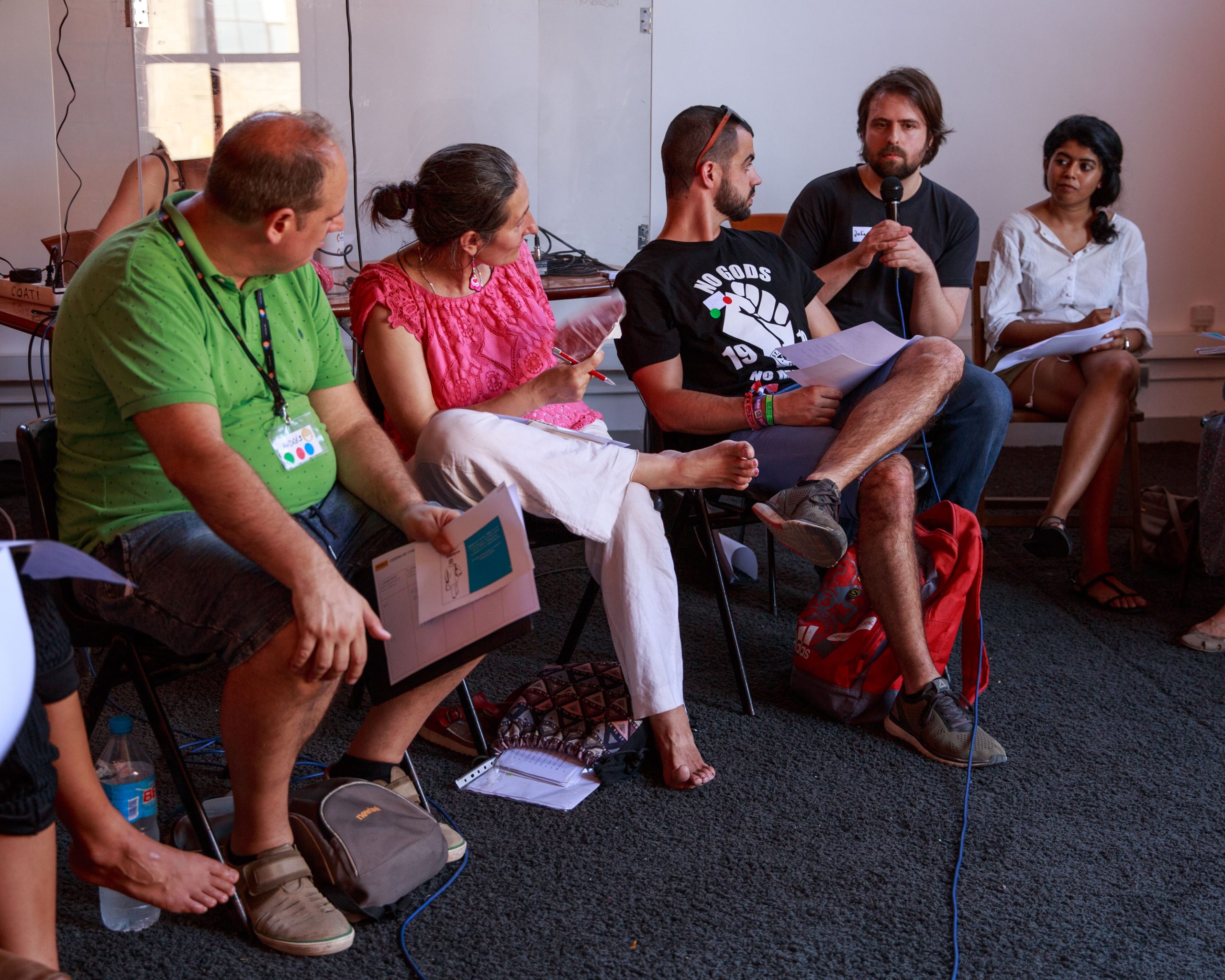
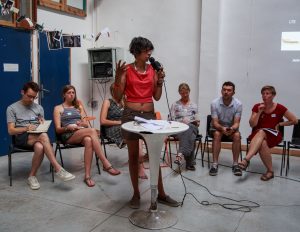
Panels & Keynotes
We brought together people from across the movements in several panels, keynotes and interactive sessions to set the ground for strategic discussions. The joint panels were the space where we connect the conference in Barcelona with the local hubs in India and Mexico. On Sunday we wove the threads together and looked ahead to what we take from this conference for our alliances, our strategies and our activities in the years to come.
Interactive formats
We created space to get to know each other, meet new people, and exchange on our struggles. There were informal spaces to meet and connect beyond the structured program.
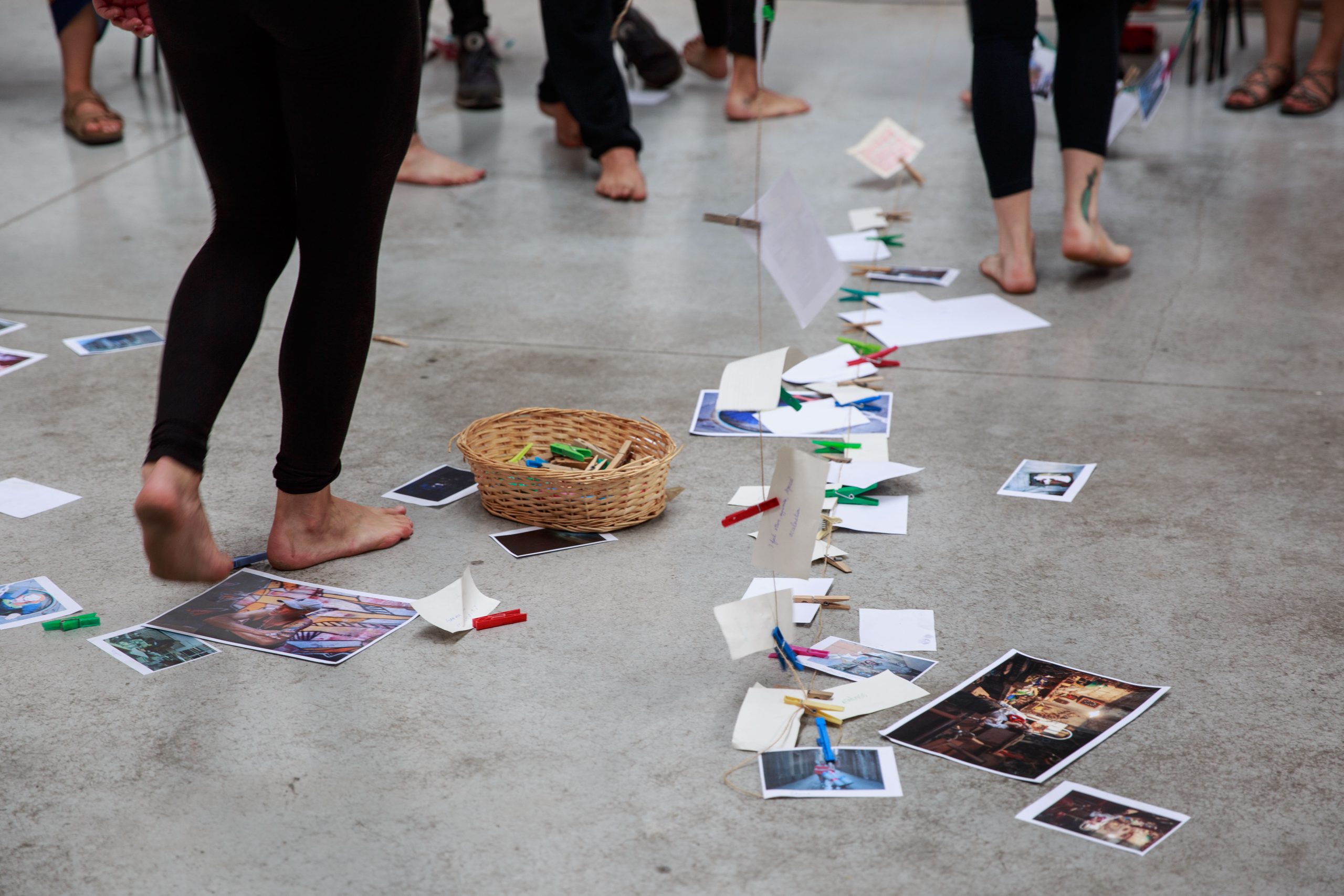
This conference is organised by



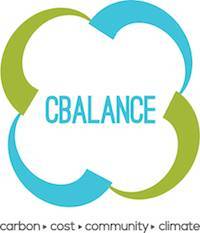
Cooperation partners




